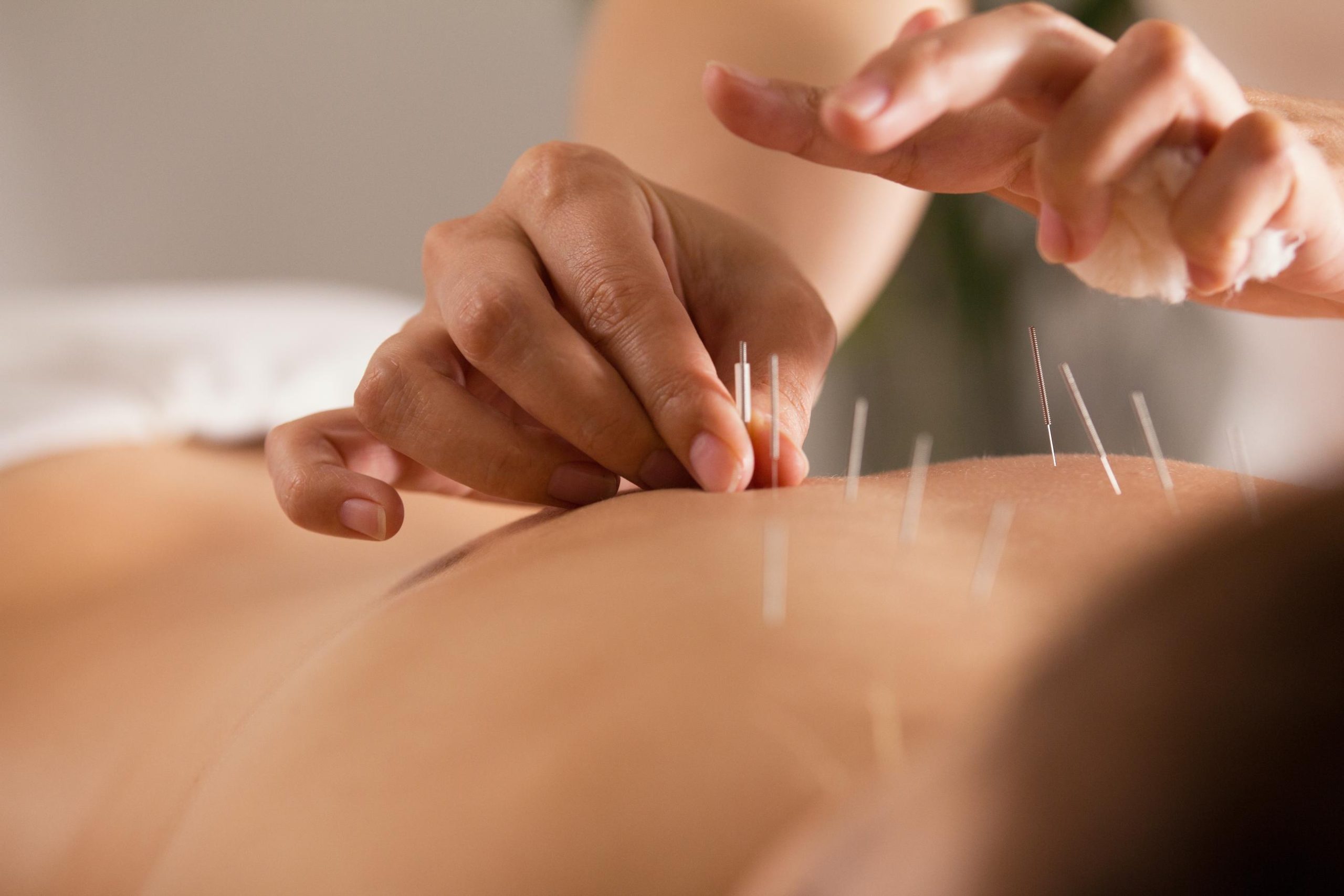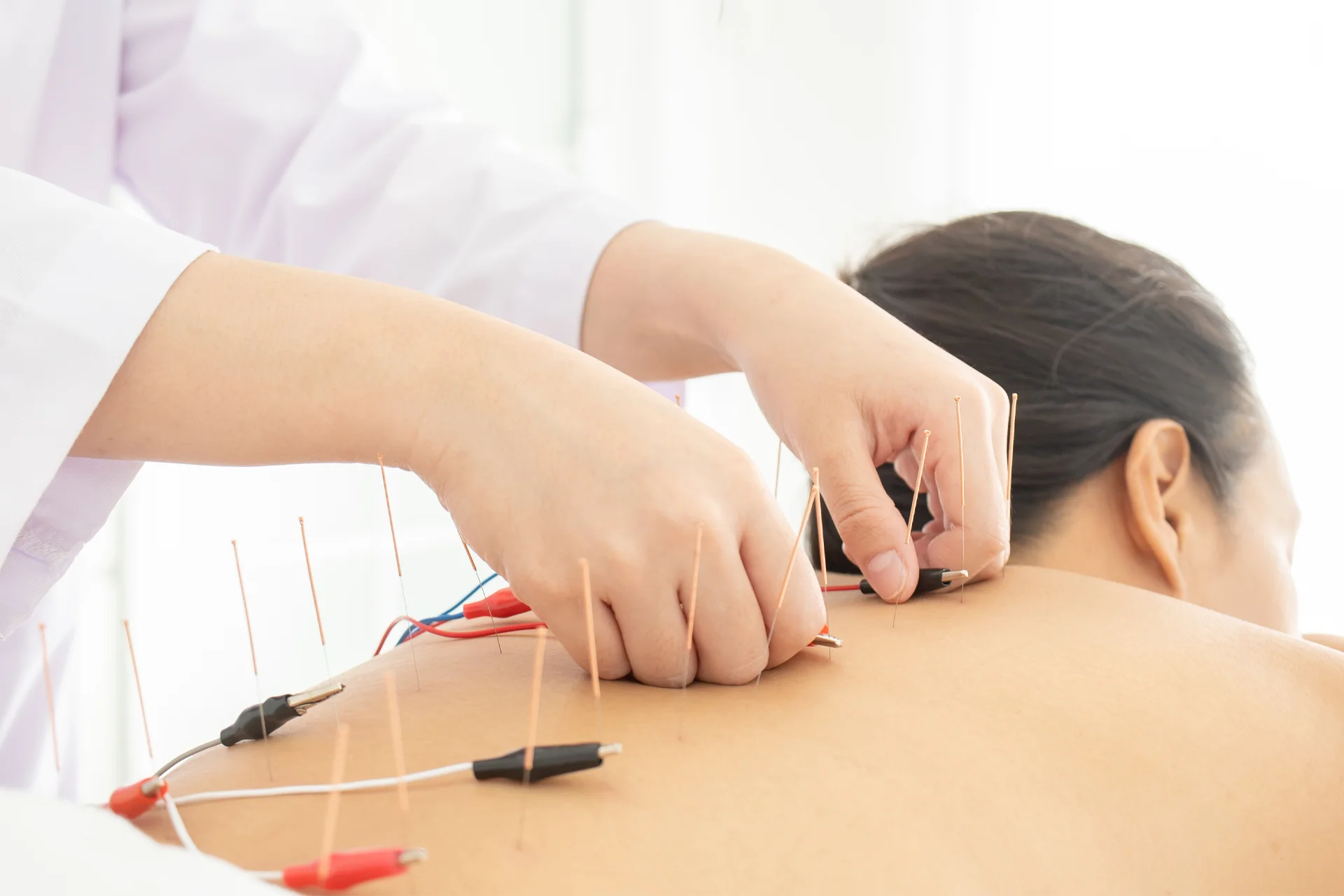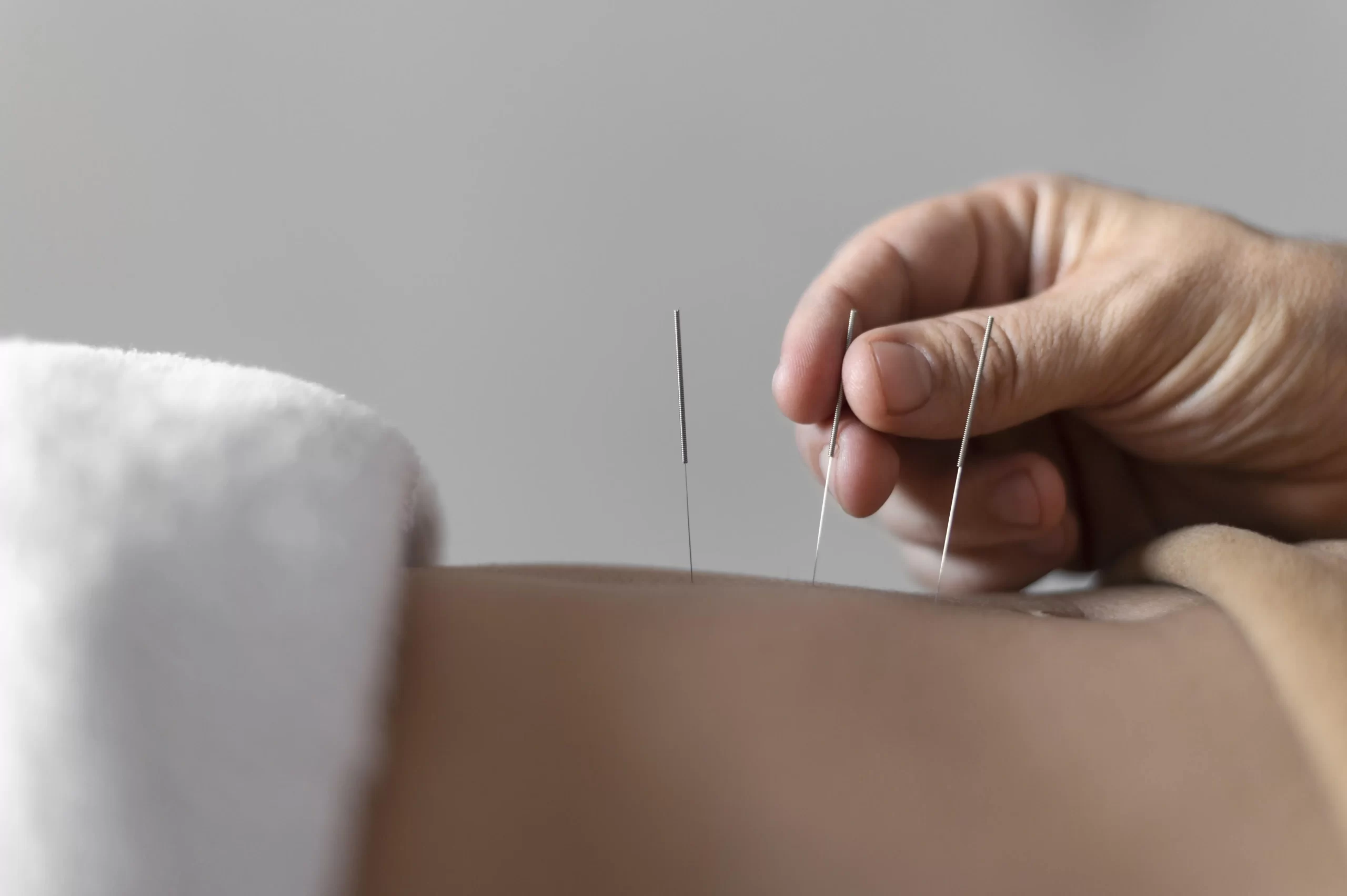
At Liang Yi, we provide acupuncture services as part of our wider TCM practice, guided by trained practitioners. Our clinics across Singapore make it easier for you to access care tailored to your specific health needs, whether for a particular condition or general wellness support.
According to Western medicine, acupuncture increases blood flow, regulates inflammatory reactions, releases endorphins, which are naturally occurring substances that reduce pain, and stimulates the nervous system. According to TCM, it aids in yin and yang balance and Qi unblocking, bringing the body back into equilibrium.
A tailored consultation precedes the delicate insertion of needles at specific acupoints in each acupuncture session by the TCM physician. After just a few sessions, most patients will notice a considerable improvement in relaxation during therapy.
One of the most common reasons people seek acupuncture is to alleviate chronic pain.
A comprehensive 2024 meta-analysis published in the Journal of Pain examined data from more than 20,000 participants across 39 randomised studies. The study revealed that acupuncture effectively relieves chronic musculoskeletal pain, osteoarthritis, and tension headaches. Importantly, the data revealed that acupuncture outperformed both placebo treatments and conventional care.
Acupuncture can help treat the following symptoms:
One of the most common reasons people seek acupuncture for pain is its ability to relieve chronic discomfort.
Acupuncture is increasingly being used in rehabilitation settings to aid in the healing of sports injuries or post-surgical recovery. It works by triggering the body's natural repair mechanisms, improving blood circulation, lowering inflammation, and controlling pain; all of which are necessary for a faster and more complete recovery.
The immune system is the body's first line of defence. When you're underactive, you're more likely to get infections and exhaustion; when you're overactive, you may develop allergies or autoimmune diseases.
Acupuncture for immunity works by regulating immune cell function, enhancing lymphatic circulation, and lowering overall inflammation. Acupuncture has been shown in clinical research to improve T-cell activity, a major immunological defence mechanism.
Chronic stress brought on by modern lifestyles can cause or worsen health problems. By increasing the production of endorphins and decreasing cortisol, the body's main stress hormone, acupuncture helps soothe the nervous system.
After receiving regular acupuncture treatments for stress and anxiety, many people reported improved emotional regulation, deeper sleep, and a stronger sense of calm.
Acupuncture therapy is effective in treating sleep issues, such as insomnia and poor sleep maintenance. Acupuncture naturally enhances your ability to fall and stay asleep by controlling melatonin levels and calming overactive brain activity.
Acupuncture can help control your gastrointestinal system if you suffer from bloating, IBS, acid reflux, or slow digestion. For long-term relief, it balances the gut-brain axis, decreases inflammation, and increases gut motility.
Everything from mood and energy levels to menstrual health and fertility can be impacted by hormonal imbalances. Acupuncture for hormonal balance helps regulate the endocrine system, which governs hormone production and release, by activating specific acupoints. This makes it particularly advantageous for:
Acupuncture is a non-invasive, comprehensive method to weight management that targets the body's metabolism, digestion, and appetite regulation. Rather than focussing solely on calories, acupuncture for weight loss targets underlying imbalances that may contribute to weight gain, such as hormonal disruptions, poor digestion, water retention, or stress-related eating.
A low, controlled electrical current is delivered by tiny electrodes that are connected to fine needles that are inserted into particular acupoints in electro-acupuncture, an improved version of traditional acupuncture. By enhancing blood circulation, lowering inflammation, calming muscles, and triggering deeper nerve responses, this mild electrical stimulation enhances the benefits of acupuncture. It provides a more specialised treatment that is still safe and comfortable for the patient, and is frequently used to treat chronic pain, sports injuries, nerve disorders, fertility support, and even weight management.

Experiencing chronic pain, stress, or fatigue
With hormonal or reproductive concerns
Dealing with joint stiffness or low energy
Seeking faster recovery
Including respiratory, digestive, reproductive and psychological
Acupuncture is generally thought to be low-risk and safe when performed by a skilled professional using sterile needles. During treatments, Liang Yi physicians follow established safety and hygienic procedures, which include cleaning the insertion sites in advance and using sterile, single-use needles.
When the needle enters your body, you might experience a tiny prick. This could be followed by twitching or soreness that spreads throughout your body. This feeling is regarded as an indication that the therapeutic effect has been maximised and the acupuncture point has been stimulated.
When the needles are removed, you might have some minor bleeding, bruising, or soreness at some sensitive areas, but these side effects should go away in a week. In accordance with TCMPB guidelines, our physicians are trained to manage the dizziness that some people may experience during or after the acupuncture session.
Each patient is different. While chronic or complicated health issues may require 8 to 12 treatments spread over several weeks, some conditions may only require 3 to 5 sessions. Based on your symptoms, way of life, and recuperation objectives, our TCM physician will create a treatment plan.
The cost of an acupuncture session in Singapore can vary depending on the complexity of the treatment. At Liang Yi TCM clinic, our acupuncture sessions start from $68 to $80. Our TCM physicians will recommend a personalized treatment plan after your initial consultation.

At Liang Yi TCM, we provide TCM Acupuncture as part of our wellness therapy, and TCM treatments. If you would like to know more, feel free to contact us and we will be in touch soon.